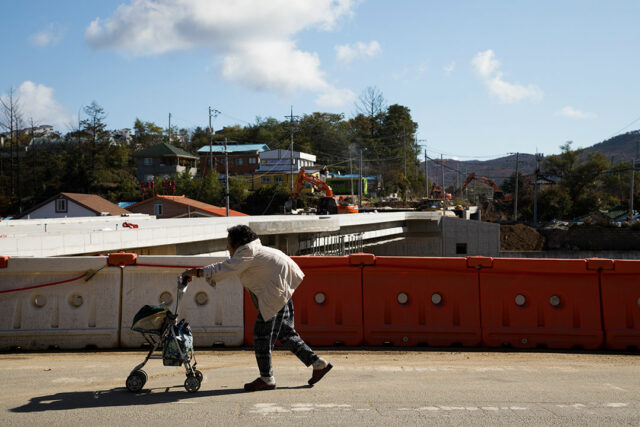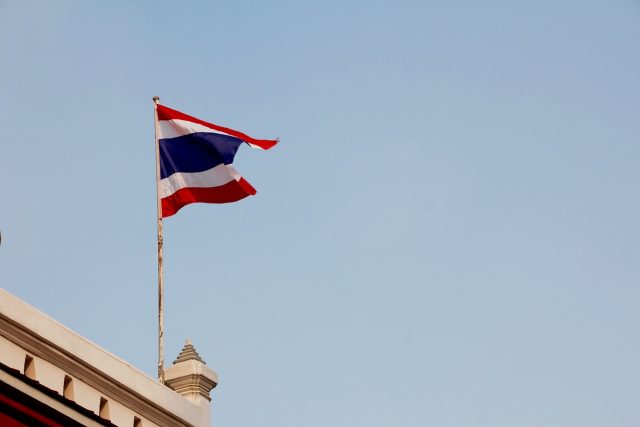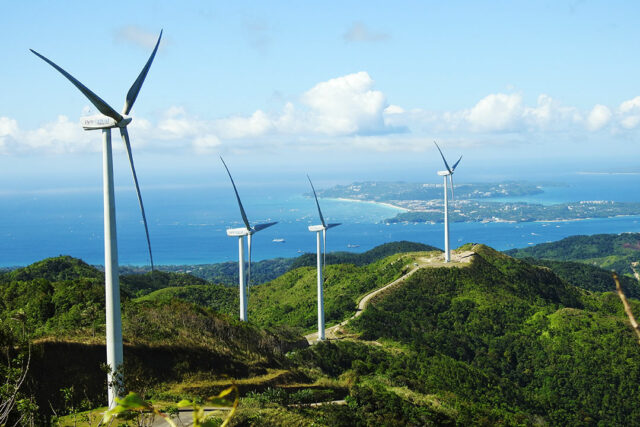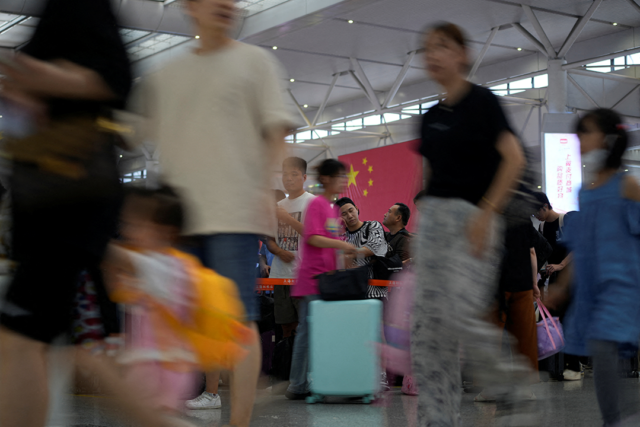SEOUL/BEIJING – Border police in China’s northeast have been given quotas to identify and expel undocumented migrants, one key aspect of broader surveillance that is making it harder for North Korean defectors to evade capture, according to previously undisclosed official documents and a dozen people familiar with the matter.
China has implemented new deportation centers, hundreds of smart facial-recognition cameras and extra boat patrols along its 1,400-kilometer frontier with North Korea, according to a Reuters review of more than 100 publicly available government documents that outline spending on border surveillance and infrastructure.
In addition, Chinese police have begun to closely monitor the social media accounts of North Koreans in China, and collect their fingerprints, voice and facial data, four defectors and two missionaries told Reuters. Stephen Kim, a missionary who helps North Koreans defect, told Reuters that based on his contacts with some 2,000 defectors, more than 90% of those currently in China had registered personal and biometric data with the police.
The measures took effect since the COVID-19 pandemic and have ramped up from 2023.
Cracking down on unauthorized migration helps Beijing manage a thorny issue in ties with Pyongyang while ensuring stability on China’s periphery, according to eight people, including security scholars, rights activists and a former North Korean official. It also gives China potential leverage over its neighbor because Beijing can control the fate of these undocumented North Koreans, several of them said.
“But primarily, China has feared that if too many North Koreans find refuge in China, more and more North Koreans would follow suit, and in time the outflow would destabilize North Korea and lead to reunification under South Korea and to the expansion of U.S. political and military influence on the peninsula,” said Roberta Cohen, a human rights specialist and a former U.S. deputy assistant secretary of state.
China’s National Immigration Administration, which is responsible for border police, and the Ministry of Public Security, which oversees the immigration agency, did not respond to queries about efforts to identify and deport North Koreans.
Beijing’s Foreign Ministry said China protected “the rights and interests of foreigners in China, while lawfully maintaining the order of border entries and exits”. It said the “relevant report is completely not factual”, in an apparent reference to Reuters reporting. The ministry didn’t respond to additional questions about Reuters findings and which elements it considered incorrect.
North Korea’s embassy in Beijing and its U.N. missions in Geneva and New York didn’t respond to questions about China’s handling of defectors.
While the documents don’t explicitly identify North Koreans as targets of the surveillance and deportations, the measures are focused on areas adjoining North Korea.
Reuters found little evidence of similar actions at China’s other borders, except its porous frontier with Myanmar, where China has been tackling organized crime and recently opened a deportation centre.
In a statement, Myanmar’s government said 48,000 of its nationals were repatriated from China between 2022 and August 2024. Both countries collaborate on border management to ensure stability, it added.
BORDER PATROL
Among the documents examined by Reuters was the 2024 budget for China’s border police in Jilin province, which adjoins North Korea.
Of 163 million yuan in spending, almost 30 million yuan went to border security upgrades. That included 22.3 million yuan for an unspecified number of new patrol boats, and funding for “deportation and repatriation” of foreigners that illegally enter, live and work in Jilin.
The budget set goals for 18 border police stations and teams: Investigate and “deal with” at least 10 undocumented foreigners; spend no more than 30 days to process each deportation; and remind residents of the “harm and price paid” for aiding undocumented migrants. It lists performance metrics, including 10 points for achieving a repatriation rate of 95%.
There were no such quotas in the 2023 and 2022 budgets.
Construction also began last year on a deportation station in the border city of Dandong, in Liaoning province, while another is planned for Changchun city, in Jilin, government tenders show.
In March, Jilin border police awarded a 26.5 million-yuan contract to a Beijing sensor maker, HT Nova, to build a surveillance system that “emits high-energy rays to penetrate vehicles and goods” and can use deep learning to continuously improve its facial-recognition capabilities, according to one tender document.
The system, funded in the 2023 border police budget, would be installed at two crossings in the Changbai area, a route defectors use. The company didn’t respond to a request for comment.
Separately, a 7,713 square-meter deportation station in the town of Tumen, which was in the works before the pandemic, was completed in 2023, according to the National Immigration Administration.
Since June 2022, the agency has published several job ads seeking graduates with Korean-language ability to work at the Tumen and Changchun facilities, who would be “mainly engaged in the detention of illegal immigrants pending deportation, identity verification, and implementation of repatriation”.
POLITICAL DYNAMICS
Beijing denies that there are any North Korean defectors, instead treating them as illegal economic migrants. There is no publicly available data on deportations of North Koreans, but rights groups say the tighter surveillance has increased the risk of capture.
About 70% of defectors who tried to reach South Korea over the past two years have been arrested by Chinese police, up from about 20% previously, according to the Seoul-based Transitional Justice Working Group, which monitors deportations. China returned at least 60 North Koreans in April, said the group’s executive director, Lee Younghwan.
The number of defectors reaching South Korea has declined overall since 2017, which Seoul’s Unification Ministry said was due to tighter surveillance on the China-North Korea border, though there has been an increase since the pandemic ended.
In a statement, South Korea’s Foreign Ministry said Seoul is making “all-out efforts” to prevent China from forcibly repatriating North Korean defectors.
Five security scholars told Reuters that while both sides wanted to stanch the flow of defectors, China’s ability to determine defectors’ destiny gave it a card to play in diplomacy with North Korea, which is reliant on trade with China but has been forging increasingly close ties with Russia.
China “can demand something from North Korea that is beneficial to China”, said Lee Dong Gyu, a China expert at Asan Institute for Policy Studies in Seoul. He said the crackdown helped Beijing from a stability standpoint, because North Korea was in economic turmoil and China did not want the effects of that spilling into its territory.
Lee Jung-hoon, an international relations professor at Yonsei University and a former South Korean ambassador-at-large for North Korean human rights, said there was a “high chance” that Pyongyang had asked China for help in blocking routes for defectors. He didn’t provide specifics and Reuters could not establish whether North Korea had made such a request.
‘TRAPPED’
This isn’t the first time that China has cracked down on defectors. Reuters reported in 2019 that Chinese authorities had conducted raids that disrupted defector networks and resulted in the arrests of at least 30 North Koreans.
But some defectors say the heightened surveillance has intensified fear.
Choi Min-kyong, who reached South Korea in 2012 and runs a support group for defectors, said widespread facial-recognition technology in China made it difficult for defectors to move around. Using public transportation, for example, had become too risky.
Shin Ju-ye, who fled North Korea in the 1990s and settled in China’s Heilongjiang province, said that during the pandemic, village officials began ordering North Koreans to register their biometric information with the police. Many of her North Korean friends complied, then regretted it, she said.
“My friends told me, ‘Sister, don’t do it. We are trapped in a fishing net now. If North Korea tells China to catch and send us, we’re dead,'” Shin, 50, said in an interview in Seoul.
Reuters could not independently verify Shin’s account, and she declined to share her acquaintances’ contact information.
Wei Songxian, head of the Heilongjiang government’s media office and vice-head of the provincial Communist Party publicity department, did not respond to questions about Shin’s account.
Ultimately, Shin did not register her details. Instead, she hatched a plan to leave China.
Traveling in private vehicles, she escaped across the southern border to Vietnam, she said. She then ventured onward by bus, boat and on foot to reach Laos and Thailand, where she was handed to South Korean authorities. She arrived in South Korea in 2023. – Reuters
















